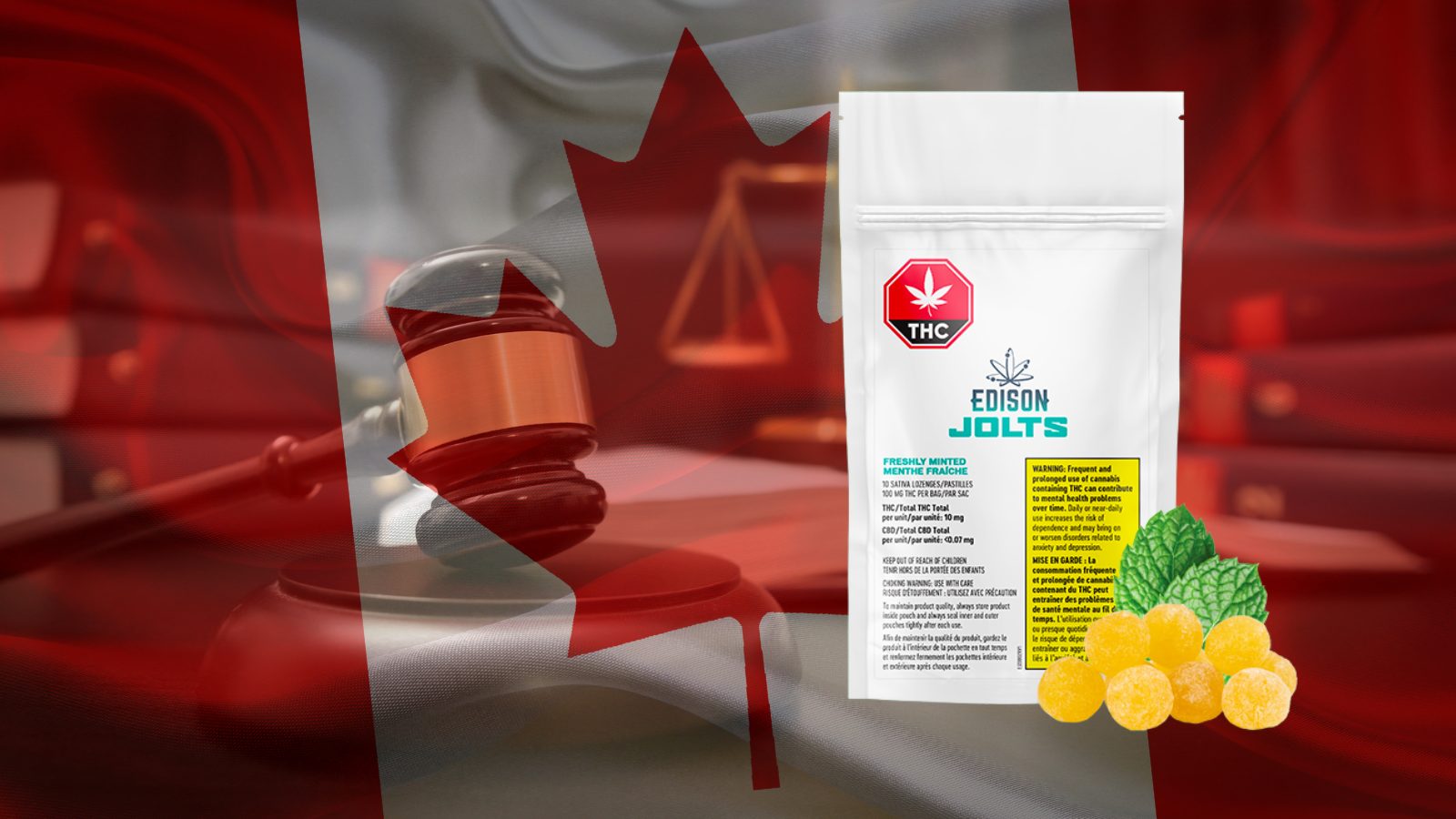In a significant legal development, a Canadian federal justice has granted licensed producer Organigram Holdings a partial win in its dispute with Health Canada over the classification of its cannabis-infused lozenges, known as Jolts. This decision highlights the intricate balance between regulatory procedures and the rapidly evolving cannabis industry landscape.
Background of the Dispute
Organigram, based in Moncton, New Brunswick, found itself embroiled in a dispute with Health Canada when the regulatory body classified its Jolts lozenges as “edible” cannabis instead of extracts. This seemingly subtle classification has far-reaching financial implications due to the differing market potential of the two product categories.
Top Reads: Keep Your Skin Refreshed and Soothed with Assuage Sunshine
Health Canada’s Breach of Procedural Fairness
The federal justice, Justice Cecily Strickland, has ruled that Health Canada breached its duty of procedural fairness in making this classification decision. This ruling underscores the importance of maintaining a fair and transparent process in regulatory matters, especially in a nascent industry like cannabis.
Potential Financial Implications
The financial stakes are high in this dispute, given that extracts hold the promise of higher profitability compared to edibles under Health Canada’s classification system. This decision could shape the future revenue streams for Organigram and other cannabis producers, making it a critical juncture for the industry.
Organigram’s Perspective
Organigram CEO Beena Goldenberg sees the court’s decision as a victory for the company, even if Health Canada ultimately reaffirms the same classification. This outcome showcases Organigram’s willingness to navigate uncharted territory and seek legal remedies when necessary.
Unaddressed Key Assertions
However, the court’s ruling leaves Organigram’s key assertion unanswered: the allegation that Health Canada treated the company unfairly by demanding the removal of Jolts from the market years after their introduction. This issue underscores the complex legal landscape surrounding regulatory decisions and their impact on businesses.
Market Implications
The court’s decision has far-reaching implications for Organigram’s products and the broader cannabis market. As consumer preferences evolve, the distinction between edibles and extracts becomes crucial, influencing purchasing decisions and market trends.
Historic Decision in the Cannabis Industry
This case marks a historic milestone within the cannabis industry as it is the first instance of a licensed producer seeking a judicial review of a federal government decision. The decision sets a precedent for how regulatory disputes in the industry will be handled moving forward.
The Distinction between Edibles and Extracts
Understanding the regulatory distinction between edibles and extracts is paramount. Extracts boast significantly higher allowable THC content per package, making them an attractive option for consumers seeking more potent products.
Internal Documents and Decision Factors
Justice Strickland’s ruling sheds light on the Classification Policy, an internal document that played a role in Health Canada’s decision-making process. This insight provides a glimpse into the complexities of regulatory decisions and the factors that influence them.
Justice Strickland’s Analysis
Justice Strickland’s analysis of the case emphasizes the importance of adequate notice and disclosure in regulatory matters. Her ruling highlights the significance of procedural fairness and the impact of these principles on businesses and regulatory agencies alike.
Notice and Disclosure Issues
The lack of proper notice and disclosure in Health Canada’s decision-making process hindered Organigram’s ability to mount an effective response. This aspect of the case showcases the critical role that clear communication and transparency play in regulatory matters.
The Importance of Sensory and Physical Characteristics
Sensory and physical characteristics played a pivotal role in the classification dispute. The court’s ruling underscores the need for regulatory bodies to consider all relevant factors and ensure consistency in their decision-making process.
The Future of Jolts
Organigram’s plans for the future of its lozenges depend on Health Canada’s reassessment. The court’s decision opens a new chapter for Jolts, potentially allowing the product to find its place in the market once again.
Conclusion
The Canadian court’s decision in Organigram’s case marks a turning point for the cannabis industry. It showcases the delicate balance between regulatory procedures and business interests, highlighting the significance of procedural fairness and transparent decision-making. This ruling underscores the need for regulatory bodies to adapt to the evolving landscape of the cannabis market while ensuring equitable treatment for industry players.
FAQs (Frequently Asked Questions)
- Why is the distinction between edibles and extracts important in the cannabis industry?The distinction influences the marketability and potency of products, impacting consumer preferences and purchasing decisions.
- What does the court’s ruling mean for Organigram’s products?The ruling opens up possibilities for the reintroduction of Organigram’s lozenges, potentially shaping the company’s future revenue streams.
- How does this decision affect the broader cannabis industry?The decision sets a precedent for regulatory disputes within the industry, signaling a new phase in how businesses interact with regulatory bodies.
- What role did internal documents play in the case?Internal documents, such as the Classification Policy, provided insights into the factors influencing regulatory decisions.
- What steps can regulatory bodies take to ensure procedural fairness?Regulatory bodies should prioritize clear communication, transparency, and consistency in their decision-making processes to ensure procedural fairness.



COMMENTS